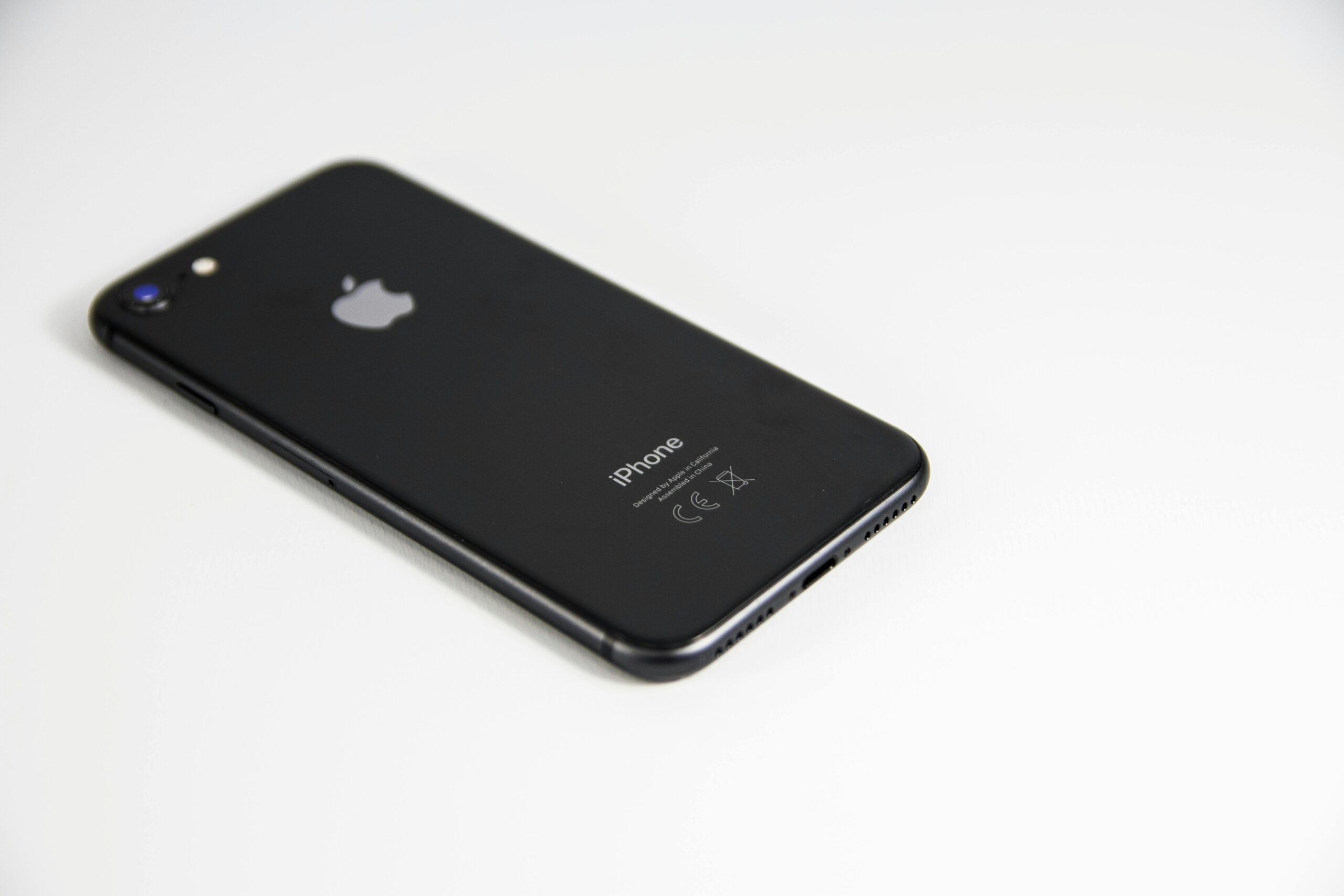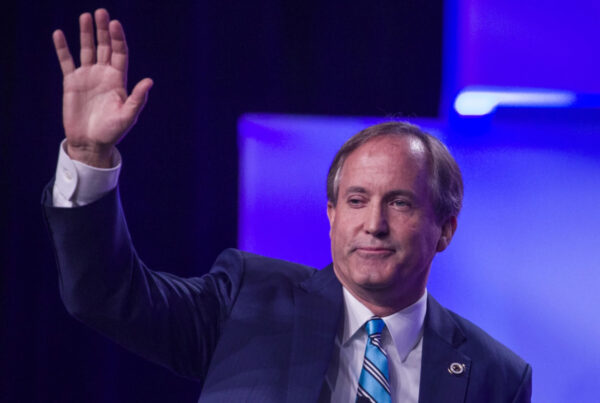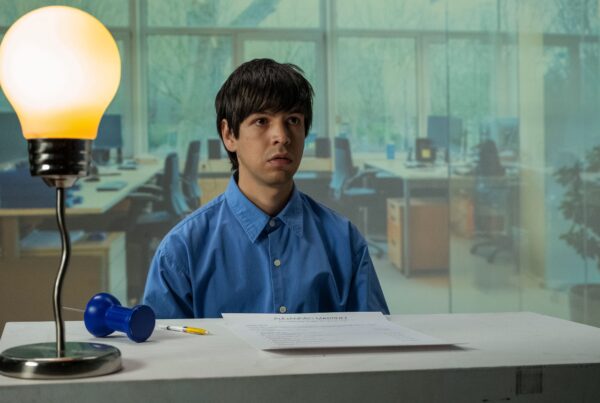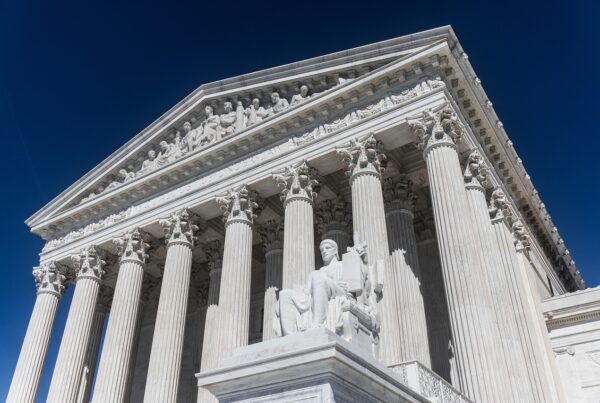On Thursday, the U.S. Justice Department filed suit against Apple in a case aimed at the ecosystem surrounding a device used by billions around the world – the iPhone. The complaint alleges that Apple is in violation of antitrust law because it maintains an illegal monopoly in the smartphone market.
Sixteen states joined the lawsuit, including Apple’s home state of California. Texas is not part of the suit.
Jason Snell is the editor of Six Colors, an independent Apple-focused news site. He says that Apple does try to keep customers connected to its web of products and services, but the government may have difficulty proving the existence of a monopoly. Listen to the interview above or read the transcript below.
This transcript has been edited lightly for clarity:
Texas Standard: One of the most striking features of this suit is the government’s claim that the iPhone represents a monopoly in the smartphone market. I guess commonly people think of “monopoly” as meaning only one alternative. But of course, there are other smartphone choices out there. A certain Samsung comes to mind. What’s the argument about monopoly here?
Jason Snell: I think it is a case where ideally, if the government felt that Apple was an abusive company, they would do what Europe did, which is pass some legislation that specifically regulates some of the things that Apple is doing. But in our country right now, it’s very difficult to get any kind of legislation passed.
As a result, the DOJ is left with the Sherman Antitrust Act, which elevates what would normally be kind of standard – maybe hard-knuckled – but standard business practices. If they’re done by a company that has monopoly status, they become illegal. And so they need to make the case that Apple is a monopoly.
I’m not a lawyer, but it seems to me that this is going to be a very tough thing for them to do.
If you look at the document that they filed, they’re even struggling there. They define the smartphone market and then redefine it as what they are calling – it’s a phrase I’ve never actually heard before – which is the “performance smartphone market,” which is essentially expensive smartphones. And by doing that, they can make it a little more common because Apple’s phones are more expensive and they dominate that market more, but then they have to re-redefine it as being not market share, but revenue share, which is a different measure. It’s how much money you’re generating in that market, instead of how many phones you’ve sold as a percentage of the total market. And even then, the best they can do is say, ‘well, 94 percent of this market.’
And it sounds like a great number, right? A number in the 90s, we’re talking monopoly here. Apple and Samsung and Google, which is very strange because arguing that Apple is one of three companies that hold 90 percent market share is not the same as saying that Apple has a monopoly. The truth is that Apple has about 60 to 65 percent of the smartphone market in the U.S. – its best market, its strongest market. But I don’t think the DOJ has a really strong case about that.
Again, not a lawyer, but it seems like they’re really struggling to try and suggest that Apple has a level of control over a market that they don’t.
There’s the court, and there’s the court of public opinion. This lawsuit seems to be hitting harder in the public conversation because it’s aimed at the iPhone, which billions of people use. And I noticed that during his press conference yesterday, Attorney General Merrick Garland talked about emails in which Apple executives were pushing parents to buy iPhones so they could lead them to think they’d need to get iPhones for their kids to be able to maintain secure connections and things like throttling videos sent by text to make Android users think it was a problem with their phones.
How much of this is really about Apple’s total control? Once you’re on an iPhone, it’s harder to get out of that paywall garden.
It’s true. This is, I think the core of it, or at least one main thrust of this suit is Apple’s business model. Their model is to get you and keep you. And I think there is a question there about, is it uncompetitive, anti-competitive, or is it competition? And I think that’s the real question.
It is undoubtedly true that Apple makes decisions to make it so that you want to buy other Apple products and that you want to stay in its ecosystem and you want to stay on the iPhone. And they don’t particularly want to make it easier to switch to Android from iPhone. This is all true, and there are lots of things to back that up.
And the question is, does that make it illegal or not? And I think you made a very interesting point there, which is how much of this is playing to the court of public opinion? A lot of the filing is about scary stories about Apple being really tough at business and exploiting its advantages as much as it can. And that’s all absolutely true. I’ve been covering them for a long time. They are very difficult to do business with. There’s no doubt about it.
I think the question is, is it illegal to be a tough competitor? And that’s the question that the DOJ is arguing here and that Merrick Garland argued yesterday – that Apple’s so powerful at this point that everything it’s doing is an abuse of that power.
The DOJ also comes down pretty hard on Apple’s privacy and security setup, which the company says is a big advantage for customers. The DOJ says Apple uses this argument as a convenient way to mask making money off of multiple paywalls. What do you make of it?
I think the challenge here is that this is very complicated, and both things can be true. I do think that Apple is very concerned fundamentally with privacy and security and the user experience on its devices. They want the iPhone to be delightful and they want people to feel safe. And I think that’s all true.
It is also true, however, that some of the decisions that Apple makes are more… I mean, there’s a spectrum. Some of the decisions are more for privacy reasons, but Apple still uses it to make money. Some of them are more for moneymaking reasons, but they also benefit privacy. And I think that by muddying the waters there, that is how Apple has gotten into trouble.
One of the things that comes up in the filing is the introduction of Apple Pay, and what they say is Apple Pay is a scheme by Apple to skim money off of credit card transactions and suppress innovation from banking apps. And it is true that Apple makes money on that. But if you go back to the invention of Apple Pay, I think the goal there was to have a unified user experience because Apple felt that it could build a better payment interface for users than opening it up and just saying, “good luck, banks, go to town.”
And so I think Apple’s heart was more in the right place there. But at the same time, they did absolutely insert themselves in the financial transaction and have made a lot of money on it. And both of those things are true.
So I’d say it’s complicated. Sometimes it’s a smokescreen. I think what they say – and it’s my favorite line in the entire document – is that they have an elastic shield that can stretch or contract based on Apple’s needs. And I think that’s pretty accurate. Apple talks about security and privacy a lot, but you know, they can adjust their opinions about that to make sure that it benefits their business the most.
» GET MORE NEWS FROM AROUND THE STATE: Sign up for Texas Standard’s weekly newsletters
So has Apple responded yet? or no.
Apple yesterday did a very brief response that I would say is fairly information-free.
It’s basically that they dispute this and that they feel like they’re innovating and that they care about their users in terms of the usability and security and privacy of the devices and that they’ll fight it. And I’d say that’s pretty much Apple’s strategy in all of these cases – has been to go out with a full defense and not admit anything, and then only give the least amount possible when forced to.
They have not done a lot of negotiating. And I think a lot of us observers of Apple have wondered if perhaps they brought this on themselves by being just so tough about it. So refusing to negotiate, but that we’re at the point now with the lawsuit filed that I have no doubt they’re going to argue every point and not give an inch.
I know you’re focused on technology more than public policy, but do you see a political dimension to this story?
I think there’s definitely a political dimension. It’s hard not to look at the, not just the Justice Department, but the 16 jurisdictions that filed with the Justice Department, which are, I would say, blue states or purple states for the most part.
I mean, I question the political efficacy of this, and I wonder what the calculation is here, because it does make certain jurisdictions look like they’re being tough on Big Tech. And “don’t we dislike Big Tech” and trying to play on that feeling like we’re defending the little guy here.
Yeah I was thinking about Elon Musk in Texas, actually, when this went down. And I didn’t see Texas on the list of plaintiffs. And I thought, how long is it going to be before Gov. Abbott is trying to welcome Apple to Texas or something along those lines?
Well, the baffling thing about it is, I don’t know if there’s hay to make here when people love their iPhones. You talk about – Is Tim Cook going to come to Austin? I can’t believe that that would happen.
But just think about the politics there. I think what I would say is Tim Cook is obsessed with a statistic called “customer satisfaction.” And every quarter when they do their financial results, they talk about “customer sat” and how satisfied Apple’s customers are with their product. And the truth is, people love their iPhone.
We found this out when General Motors announced they weren’t going to support CarPlay in new cars anymore, that there were a lot of people who said, and there have been surveys that suggest this, that people will choose a car based on whether it has CarPlay or not because they’re far more devoted to the iPhone than they are to whatever car they’re driving. And they will choose that.
So I don’t know if singling out Apple and the iPhone, a product that people like, and saying we’re going to take them down, has the political effect that they think it might have.
And not to get conspiratorial, because I’m not sure I believe this, but as a non-lawyer looking at this document, I’m not entirely convinced that they have chosen some of the more difficult things that Apple does. It feels a little bit like, to a certain extent, they want to be seen as being tough on Big Tech without actually doing much.
So we’ll see how it goes. But I would be skeptical about people feeling like, yeah, “stick it to Apple” when people actually do really like the product.















